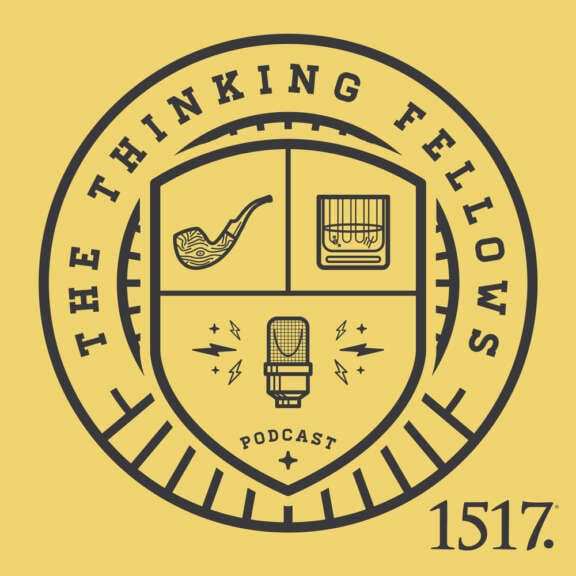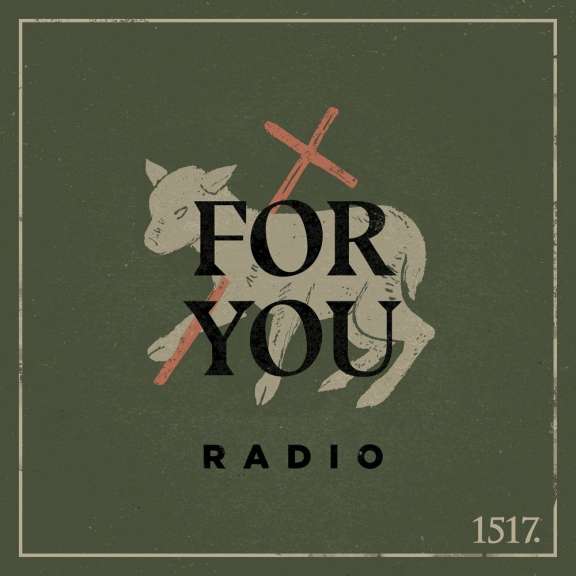Scott and Caleb move into the Catechism's explanations of the Means of Grace. Starting with Baptism, Luther follows Scripture to explain how God's Word and promises are delivered to us through ordinary means like water.
Podcasts
Each 1517 Podcast is dedicated to delivering Christ-centered content through weekly, monthly, and seasonal audio platforms. Listen online or on your favorite podcasting app.
Author
- All Authors
- Aaron Zimmerman
- Adam Francisco
- Amy Mantravadi
- Blake Flattley
- Bob Hiller
- Bradley Gray
- Brian W. Thomas
- Bror Erickson
- Bruce Hillman
- Caleb Keith
- Chad Bird
- Chris Rosebrough
- Christopher Gillespie
- Cindy Koch
- Craig Donofrio
- Dan van Voorhis
- Daniel Deen
- Daniel Emery Price
- Darrin Sheek
- David Andersen
- David Rufner
- David Zahl
- Debi Winrich
- Delwyn Campbell
- Donavon Riley
- Doug Klembara
- Edward Killian
- Elyse Fitzpatrick
- Erick Sorensen
- Flame
- Grant Klembara
- Gretchen Ronnevik
- Haroldo Camacho
- Jacob Smith
- Jared C. Wilson
- Jeff Mallinson
- Jeffrey Pulse
- Jessica Thompson
- Jim Nestingen
- Joel Fitzpatrick
- Joel Hess
- John Andrew Schreiner
- John Bombaro
- John T. Pless
- John W. Hoyum
- John Warwick Montgomery
- Katie Koplin
- Kelsi Klembara
- Ken Sundet Jones
- Magnus Persson
- Matt Popovits
- Michael Berg
- Michael Horton
- Nick Lannon
- Paul Koch
- Peter Nafzger
- Philip Bartelt
- Raleigh Sadler
- RJ Grunewald
- Robert Kolb
- Rod Rosenbladt
- Ron Hodel
- Sam Leanza Ortiz
- Sarah Condon
- Sarah Crowder
- Scott Davis
- Scott Keith
- Steven Paulson
- Tanner Olson
- Troy Neujahr
- Uwe Siemon-Netto
- Wade Johnston
- William Cwirla
-
From the city begun by Mad Anthony in 1794, some mad preachers carry on the revolutionary spirit with some spirited talk about submitting to murderous immoral pagan emperors.
-
Caleb, Scott, and Rod discuss the the context and introduction to Luther’s Small Catechism.
-
A shelter from pigs on the wing... In this episode, how do Christians interface with a godless state, love our neighbors without being complicit in promoting sin, and maintain the tension between the two kingdoms?
-
You Know Who Else Misunderstood The Kingdom of God? Hitler! In this episode, we read Herman Sasse’s 1930 essay on The Social Doctrine of the Augsburg Confession and its Significance for the Present. We discuss the two kingdoms doctrine, peoples’ station in life, and the need for public discussions of natural law.
-
We asked Dr. Steven Paulson when the end of the world would be… He said it already happened and we missed it! But that’s Ok, Jesus invites you into it! Perk up your ears and give us listening to.
-
Elections and presidents and politics and voting. Repent and believe the good news! Everything will be ok.
-
How big can you build your cross? Or maybe that's not what Jesus wants from his followers. I guess you should listen to find out...
-
Kids - you'll never know the freedom of "come home with the streetlights on". But don't worry, be nostalgic for the Gospel of Jesus!
-
Orgies and drunkenness and licentiousness, oh my! Sometimes Christians get hung up on the really “big” sins, but Paul lists quarreling and jealousy right there with them. What’s the connection? Craig and Troy discuss how love does no wrong to a neighbor, for love is the fulfillment of the law.
-
“Vengeance is mine!” says the Lord. God has established governing authorities to punish the wrongdoer. How do we understand our role as Christians and our role as citizens? Craig and Troy wade into this topic and wrestle with God’s Word and difficult realities.
-
On this episode, the Thinking Fellows talk about catechisms and catechetical methodology. During the Reformation, catechisms were a tool for addressing the issue of Christian education.


